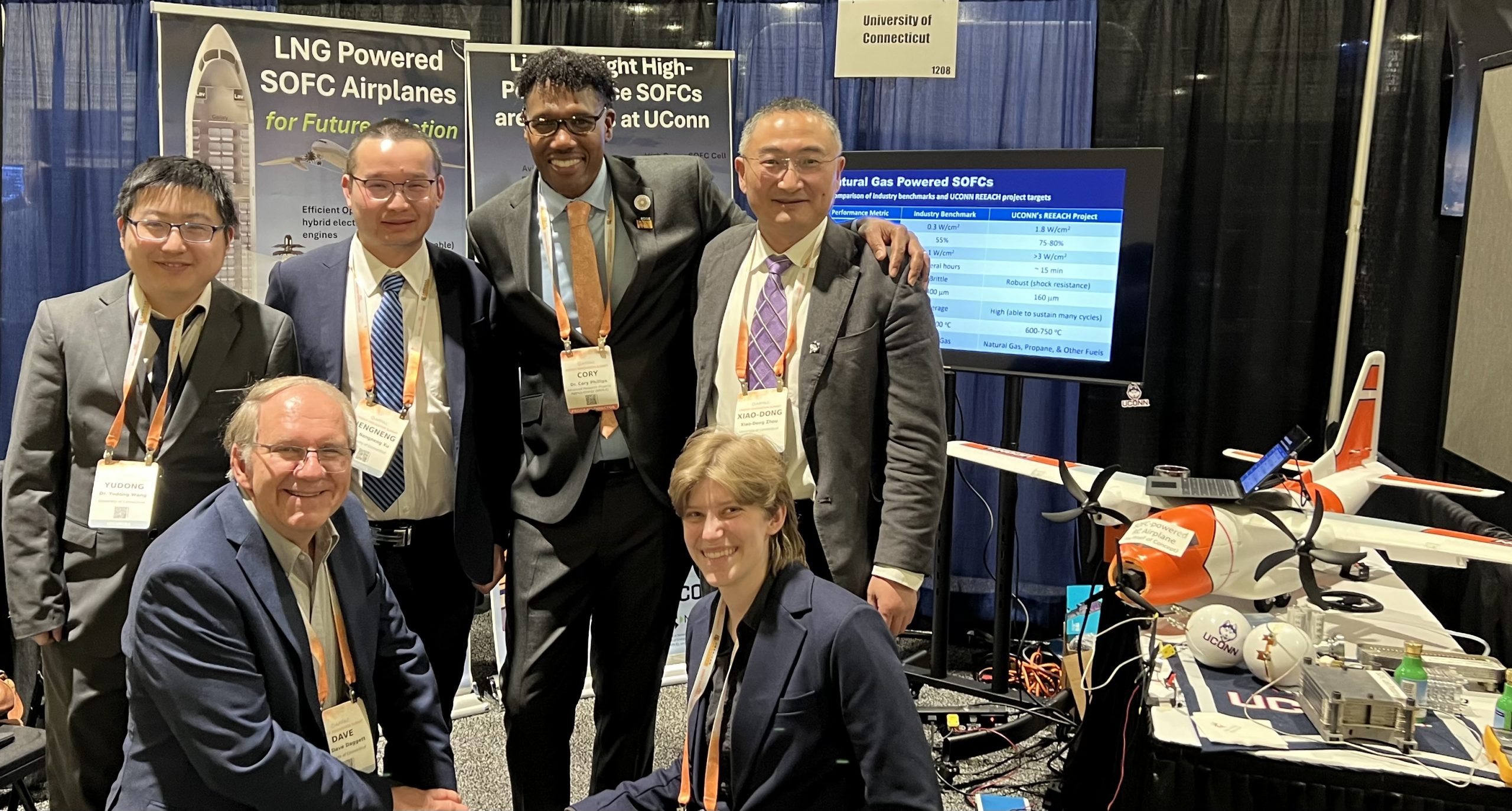UConn Researchers Showcase Promising Fuel Cell Technology at Energy Innovation Summit
Key Ideas
- UConn researchers, including graduate student Megan Cunningham, showcased high-power, lightweight multi-fueled solid oxide fuel cells (SOFCs) at the ARPA-E Innovation Summit.
- The SOFC technology has the potential to revolutionize electric propulsion in aviation, offering high efficiency and surpassing industry benchmarks in various aspects.
- The team also explored collaborations with companies like Rolls-Royce and RTX for future applications of their technology in ground-based power generation and small-scale airplanes.
- The summit provided a platform for networking, knowledge exchange, and discussions on the future of energy innovation, emphasizing the commercial potential of UConn's technology.
Recently, UConn graduate student Megan Cunningham and a team of researchers attended the 2025 U.S. Department of Energy's ARPA-E Innovation Summit to showcase their work on solid oxide fuel cells (SOFCs). The summit, which brought together top energy experts and innovators, exposed participants to over 400 projects across various energy fields. The UConn team highlighted their developments in SOFC technology, specifically focusing on their application in aviation. Led by Professor Xiao-Dong Zhou, the team's research aims to eliminate range limitations in battery-powered aviation and pave the way for high-performance electric propulsion systems.
The project, funded by ARPA-E under the REEACH program, has already led to several patent applications and innovations that could advance SOFC technology. The team's discussions at the summit extended beyond aviation, exploring collaborations with industry leaders in energy, aerospace, and defense sectors. These interactions opened doors for potential partnerships and future applications of their technology in ground-based power generation and marine data collection.
In addition to showcasing their work, the UConn team actively engaged with industry professionals, alumni, and partners to gain insights and explore opportunities for collaboration. The summit's panel discussions underscored the importance of utilizing innovative technologies like nuclear fission, electrochemistry, and AI in meeting the growing energy demands. Overall, the summit provided a valuable platform for networking, knowledge exchange, and discussions on the future of energy innovation, leaving participants optimistic about the commercial prospects of their technologies.
